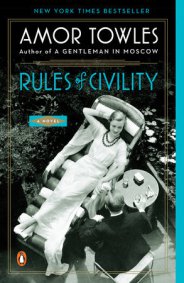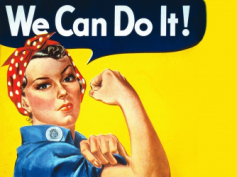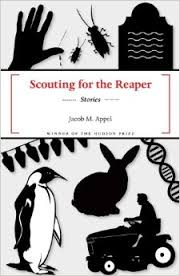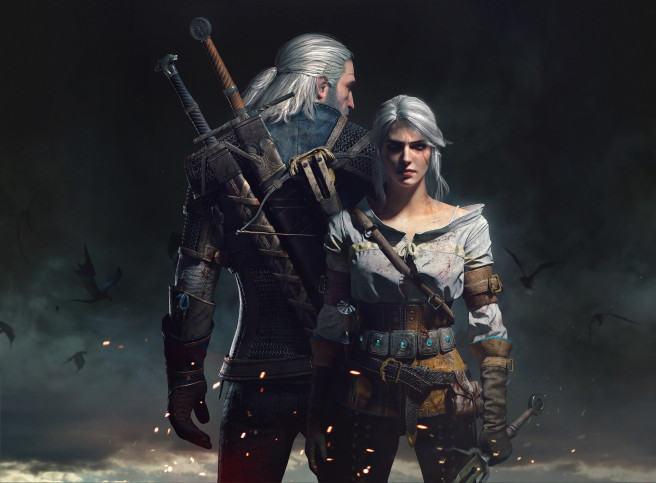
http://www.penguinrandomhouse.com
Rules of Civility is a novel that seems to often have unexpected occurrences taking place. It is intricate and there are many hidden meanings and symbols throughout. The New York City setting with the narrator being a woman and it taking place through the late 1930s and 1940s adds an interesting aura. This time era adds different trends, jobs, and most importantly very different actions and words towards women than what would be excepted in today’s society. It varies from the time period we live in today and for that I am thankful. Throughout the novel, there is most definitely devaluing of the female characters. The way they are treated is better than how they would have been earlier in the 1900s but worse in comparison to current times. There are more opportunities for female characters in this novel than I would have expected. However, the females are not treated entirely how they should and deserve to be.
Tinker Grey is one of the lead characters in the novel who begins to treat some of the key female roles unkindly and he almost seems to “play” them in this book. As mentioned in previous blog posts, Tinker meets Eve and Katey at a bar one night. They go out as a group a couple more times and then, when Tinker is driving home one night, they get in a car accident. Tinker is left feeling extremely guilty as Eve is quite injured. Eve moves in to live with him so that he can assist in her recovery and to take some of the guilt off of Tinker. Another women in the novel, Anne Grandyn, seems to appear often when the group goes out. Tinker, however, told Eve and Katey that she was his godmother. They believed what Tinker told them. In the end, Anne was someone with whom Tinker was romantically involved. Anne, who sometimes associated with Katey didn’t allow for her relationship with Tinker to be revealed. Katey was questioning how Anne felt about Tinker and Eve, Anne said, “But if deposed, I’d have to admit, I’ve always imagined Tinker with someone who would challenge him a little more. Intellectually, I mean” (Towles 125). He was essentially playing both Eve and Katey as he appeared to have feelings for all of them. This is not the proper way to treat a woman. Tinker was not a man that treated women appropriately, as they should be. This was most certainly a case of devaluing.
Katey, the protagonist, generally has a positive attitude to both male and female characters in the book. She treats them with the amount of respect they deserve. She accepts people for who they are throughout the novel and is always reaching out to find some new acquaintances or people to talk to and with whom to associate. She has an attitude that is open and willing to try new. This allows for an open mind when new characters are introduced. It gives the idea that these people could be good, or they could also end up bad. There is an openness about the meeting and introductions of new characters in the novel.

Amor Towles- author http://www.amortowles.com
This novel deals a lot with businesses and work and, for the most part, men held the top positions at these big businesses or big banks. Eve’s father was one of these men, “Her father was driven to the office in a company car and she ate biscuits for breakfast cut in the pantry by a Negro named Sadie” (Towles 14-15). They were the dominant figures. It was almost shocking when women would play the more dominant role. However, it was viewed only a few of the times in the book. For example, Anne Grandyn was a very rich woman who seemed to have come about this money on her own. In other cases though, some of the rich people had got their money from their fathers- but the money never came from their mothers. Eve was a character that received money from her father, “After a few months of Eve’s self-reliance, Daddy sent along an envelope with fifty ten-dollar bills and a sweet note about how proud he was” (Towles 15). As Katey jumped around jobs, her job when the novel began was at a business that was run by a woman, Mrs. Martingdale. Once Katey quit her original job, in the following ones after this, the top positions were held by males. These male figures were the ones that would be making the most money compared to the females in the text.
The setting of the novel occurs in the Great Depression as well as the entry into World War II. This was a very crucial time in American history as it was when women finally got to work, The war came up quickly and women had to help in the factories and do all the jobs that were considered the jobs for men prior to this time. In the 1930s, women were almost seen as incapable of performing the tasks of the men. However once the 1940s hit, there was no other option. These finite details about history were not exactly described. Katey, when the book began, still continued to have a job even before the second World War. There was some reference to the war, as one of the characters, Wallace, did go over to battle. The role of the woman was definitely not the same of the role of the man at the times. It was getting progressively better but the women were not appreciated as much as they should be and would often suffer from getting paid a lesser amount or working in bad conditions, “On the twenty-second of June, I spent the afternoon taking depositions for you Thomas Harper, Esq., in a room without windows or ventilation” (Towles 121).

http://www.history.com
In Rules of Civility, women exercise their power by essentially doing what they please. There is not a lot of frowned upon actions from male characters towards female characters. Katey is able to do what she wants. For example, she switches her job throughout the novel but that is considered permissible. There was no one telling her that her decision was wrong because she was a woman, instead it was encouraged. The one opportunity that arose for Katey to switch jobs was encouraged by her former boss, “Whether his journal succeeds or fails, a young woman with your intelligence will have the chance to learn a great deal at his side” (Towles 158)
Overall, women in the novel that I chose are treated unfairly. The times were hard coming out of the Great Depression and then moving into the second World War. This was no reason for any human being to be treated differently than another just because of their gender. The women were treated worse prior to this novel and slowly but surely have been treated better as time goes on. There is no reasonable answer as to why the women were treated unfairly in the book but I can say that I am glad they were not treated any worse. Had the women in the novel been treated worse it would have made it much more difficult to read.
Advertisements Share this:




